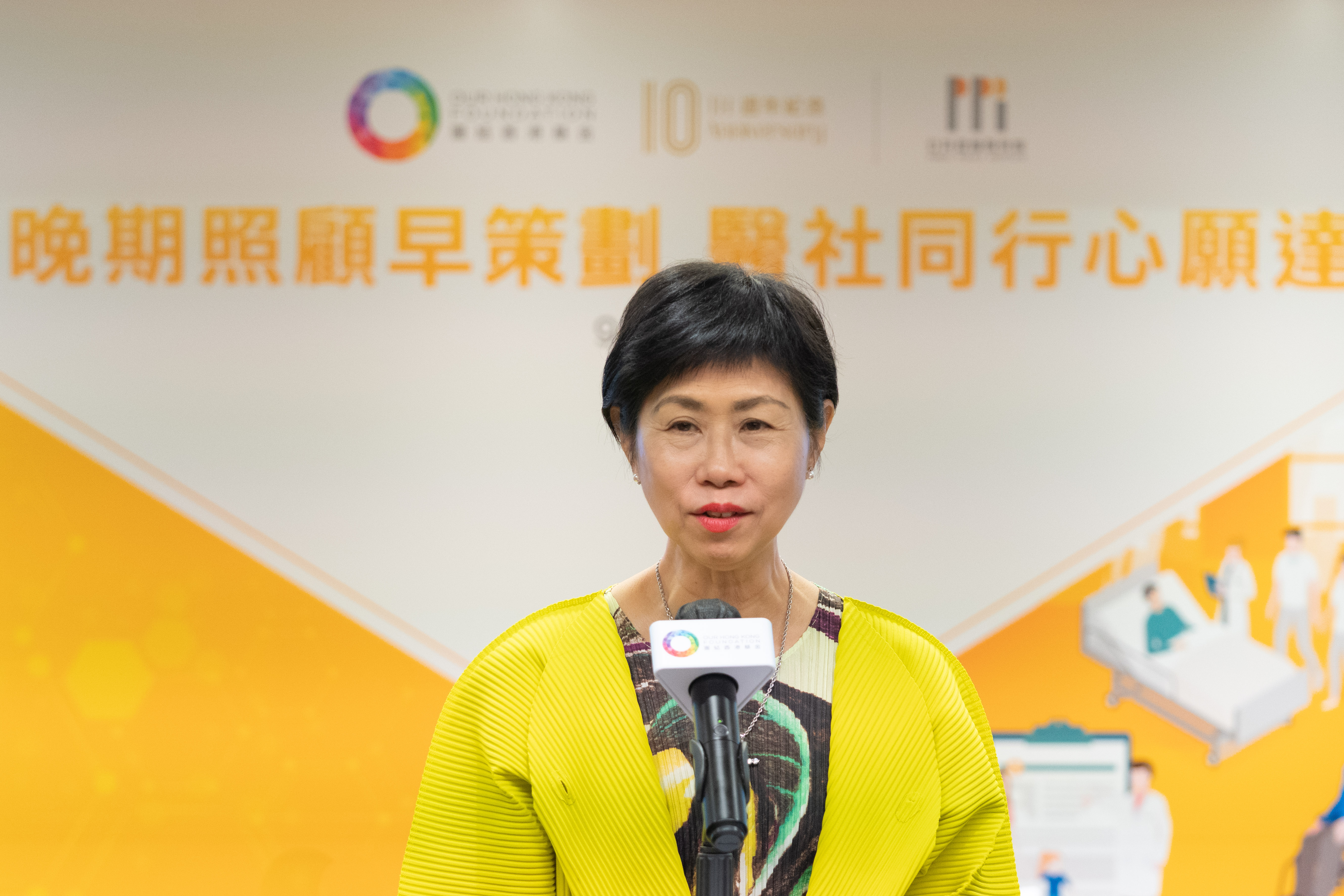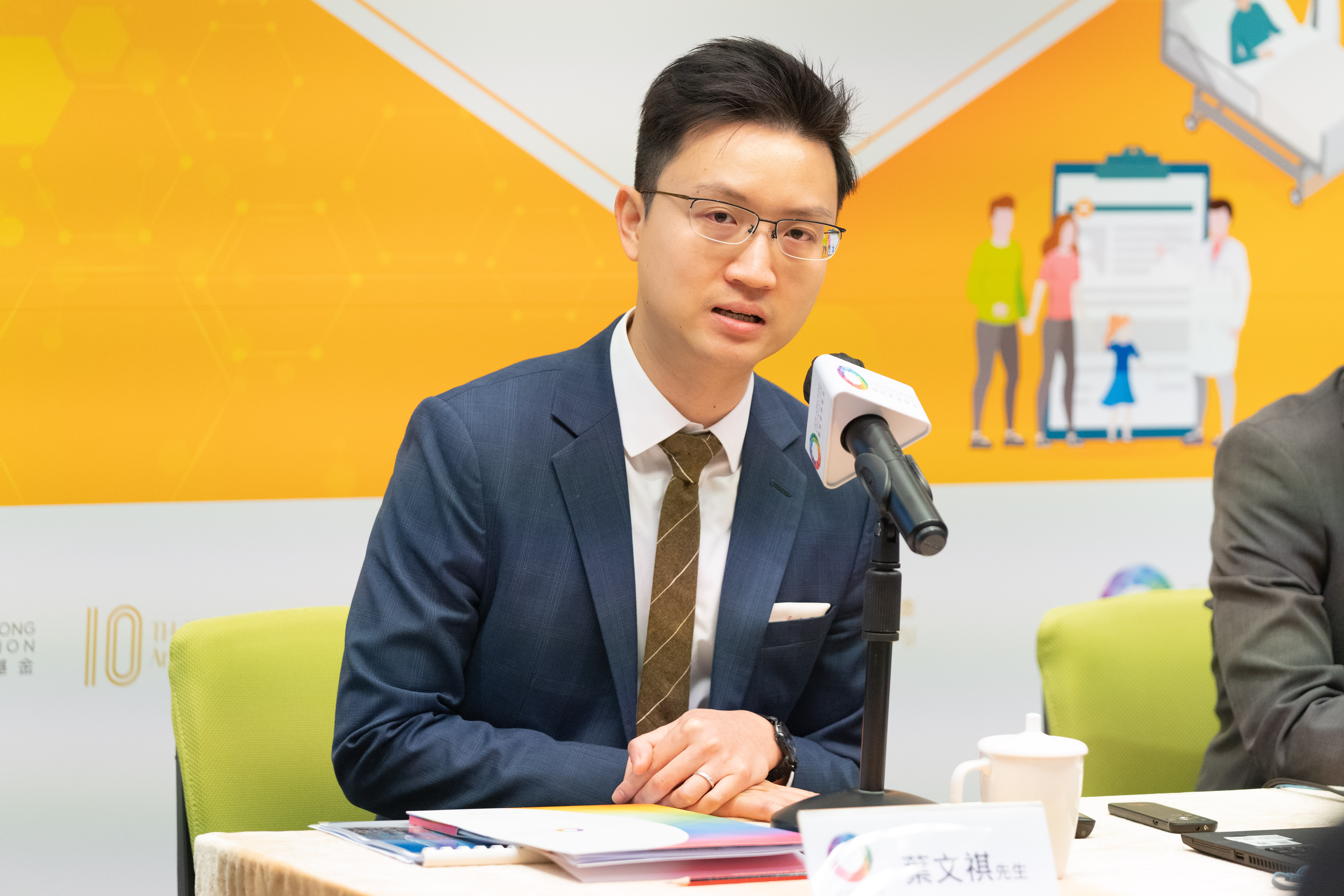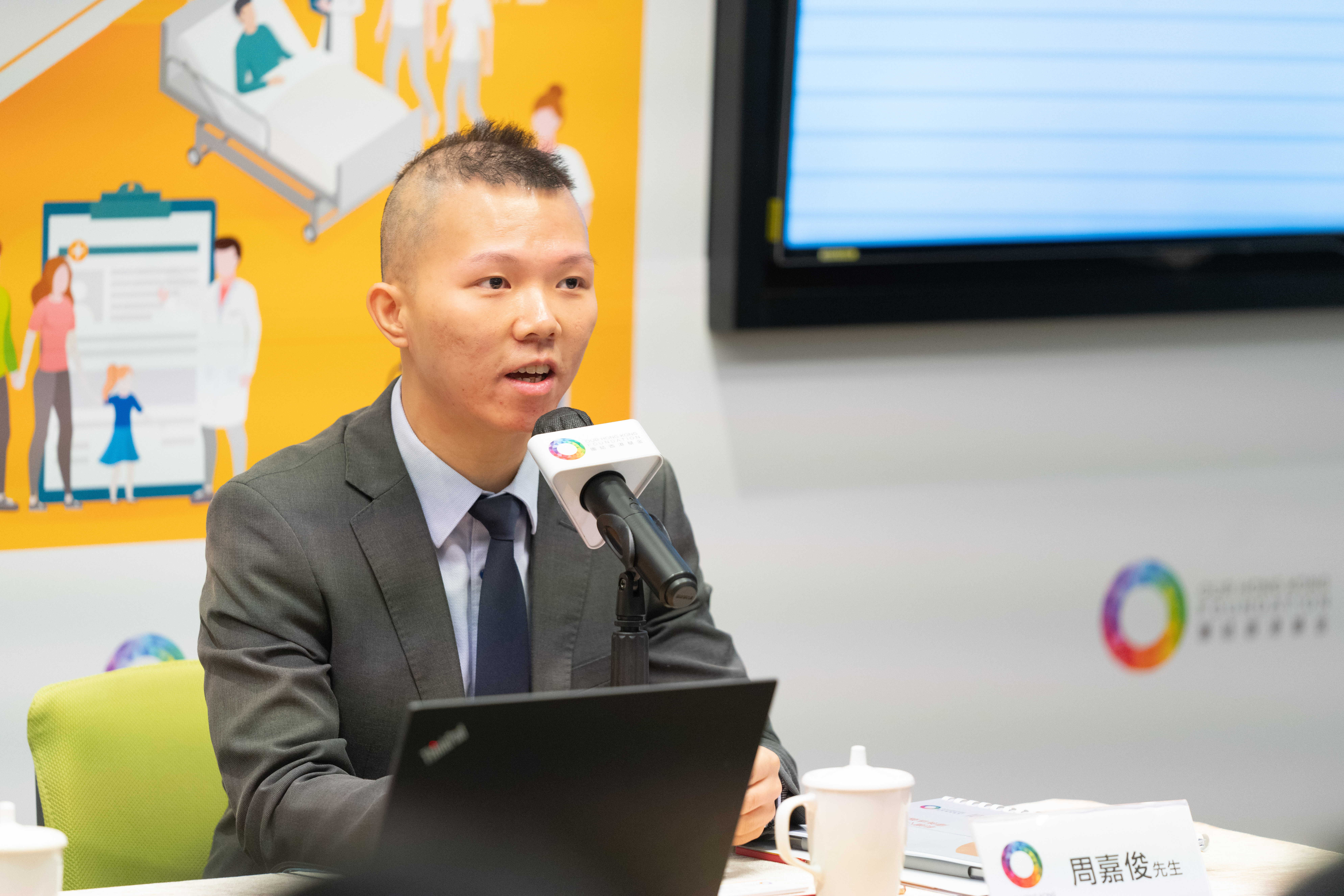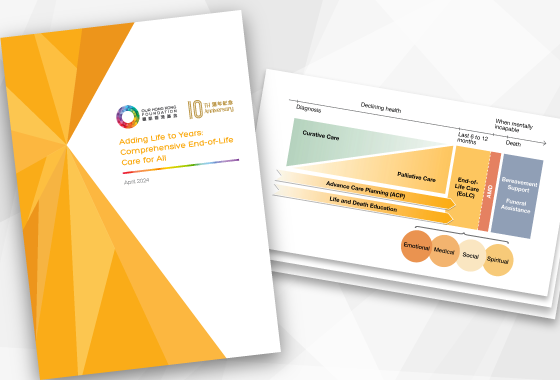Our Hong Kong Foundation Launches Policy Advocacy Report Adding Life to Years: Comprehensive End-of-Life Care for All
Our Hong Kong Foundation
Launches Policy Advocacy Report
Adding Life to Years: Comprehensive End-of-Life Care for All
(9 April 2024, Hong Kong) Our Hong Kong Foundation (OHKF) today released a policy advocacy report titled Adding Life to Years: Comprehensive End-of-Life Care for All.
OHKF applauds the Government’s introduction of the Advance Decision on Life-sustaining Treatment Bill, providing legal status to advance medical directive (AMD) which helps promote end-of-life care (EoLC). While this bill is commendable, a holistic approach is necessary to address the full spectrum of EoLC needs. EoLC extends beyond medical care, encompassing the medical, social, emotional, and spiritual well-being of seniors or citizens in their final stages. OHKF emphasised that Hong Kong demands comprehensive EoLC that not only benefits individuals, including patients, carers, and families, but also alleviates strain on the healthcare system.
This study draws insights from interviews involving stakeholders from various sectors, revealing the core issues faced in promoting EoLC services. OHKF recommends the Government to advance the development of person-centred, dignified, and coordinated EoLC in Hong Kong, and puts forward 6 policy recommendations across the domains of system, service, and education, through “One Framework, Two Sectors and Three Strategies”.
One Framework: Develop a Territory-wide Standardised Advance Care Planning (ACP) Framework.
The legislation on Advance Medical Directive (AMD) has laid the foundation for the development of comprehensive EoLC. The Government should seize this opportunity to further promote ACP, allowing citizens to express their wishes for EoLC and holistic needs early on for obtaining necessary services. Currently, there is significant variation in ACP across society, with a lack of unified standards and norms. To address this, the Government can collaborate with universities and non-governmental organisations to develop a territory-wide standardised ACP framework to ensure citizens enjoy comprehensive EoLC. Inspired by successful experiences of the UK, Singapore, and Australia, this framework should incorporate the training of professionals and the inclusion of ACP information into eHRSS, while facilitating effective communication on the documentation of ACP between different units in hospitals (especially Accident and Emergency Department) and other health and social care institutions. Furthermore, the framework should also be person-centred, designing an individual journey for making ACP, which could include public education, active engagement, proper documentation, and regular review and implementation of ACP documents, as well as the consultation services in the journey.
Two Sectors: Formulate an EoLC Medical-Social Service Strategy and Establish a Clear and Consistent Communication Pathway
Recognizing the existing challenges of fragmented EoLC services, it is imperative for the Government to formulate a service strategy connecting medical and social services. It should establish a clear role delineation and collaboration model among organisations and professionals, ensuring patients receive coordinated care. Within the hospital system, the plan should emphasize the complementary roles of palliative care and other specialties, while between the medical and social sectors, clear and consistent communication channels are needed.
Building on successful models from Singapore and local initiatives, the Government should establish a communication channel that integrates existing service referral networks. This will streamline the process for patients transitioning to suitable community services. Specifically, the Government should establish a coordination mechanism between hospitals and social services, which should include holistically assessing patients’ holistic needs, matching them with existing social services, and following up regularly. This can ensure that patients receive integrated EoLC across medical and social sectors.
Three Strategies: Promote Public Life and Death Education, Provide ACP Training for Community Professionals and Volunteers, and Strengthen Training in Health and Social Care
The three strategic initiatives aim at comprehensively enhancing public awareness and skills regarding EoLC through public life and death education, ACP training for community professionals and volunteers, as well as enhanced training in health and social care.
While public awareness of EoLC is currently limited, there is no strong resistance. The Government should strategically promote public life and death education to individuals at different stages of life and preparedness. For instance, life and death education should be incorporated into primary and secondary school curricula to cultivate a correct understanding of EoLC from a young age. Health and social care professionals should proactively provide ACP information to citizens with declining health and their families, laying the groundwork for them to make ACP and AMD in the future.
Furthermore, for community professionals and volunteers providing medical and social services to citizens, the Government should introduce a certification mechanism and provide incentives for them to undergo ACP training, enabling them to serve as ACP facilitators across diverse service settings. Promoting ACP training widely will also help establish communication channels for community professionals and relatives to convey EoLC information to individuals in need. Moreover, the Government should enhance EoLC elements in university curriculum and on-the-job training for health and social care professionals, emphasising the importance of striking a balance between disease management and improving a patient's quality of life and preventing overemphasis on curative treatments.
OHKF President Dr Jane Lee said “With the legislation of advance medical directive on the horizon, we have observed increasing public awareness of end-of-life care. We hope to seize this opportunity to broaden the discussion around end-of-life care, helping citizens express their preferences early on. At the same time, we call on the Government to integrate and coordinate existing healthcare and social resources to lower the threshold for citizens to access comprehensive end-of-life care services.”
OHKF Vice President cum Co-Head of Research Mr Ryan Ip remarked “Through ‘End-of-Life Care 123,’ that is ‘one advance care planning (ACP) framework, two service sectors namely medical and social sectors, three education strategies,’ we aim to support the vision where end-of-life care is delivered in a person-centred, dignified, and coordinated manner in Hong Kong to meet the citizens’ needs for holistic care.”
OHKF Head of Healthcare and Social Innovation Mr Dicky Chow commented “Hong Kong has huge room for development in advance care planning (ACP). The Government can take reference from the "Respecting Choices" certification training programme in the United States. The programme equips participants from diverse professional backgrounds with the skills to discuss ACP with individuals of different health statuses.”
Adding Life to Years: Comprehensive End-of-Life Care for All:
Full report: https://bit.ly/4cLbEZf
Executive Summary: https://bit.ly/3PSex0q







